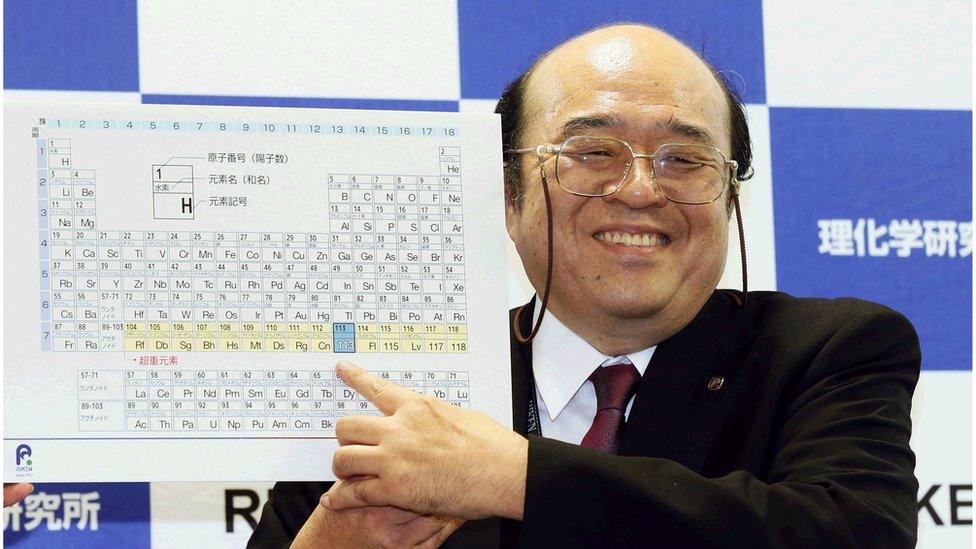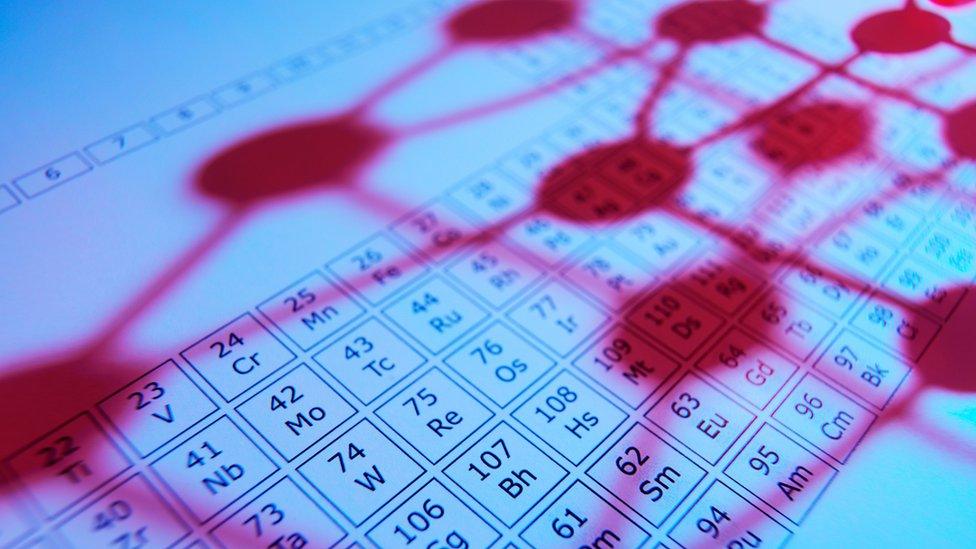Chemistry: Four elements added to periodic table
- Published

Kosuke Morita led the Japanese team at the Riken Institute
Four chemical elements have been formally added to the periodic table, completing the scheme's seventh row.
They are the first to be included in the table since 2011, when elements 114 and 116 were added.
The first true iteration of the table was produced in 1869 by the Russian chemist Dmitri Mendeleev.
The new additions were formally verified by the International Union of Pure and Applied Chemistry (IUPAC) on 30 December 2015.
The body announced that a team of Russian and American researchers had provided sufficient evidence to claim the discovery of elements 115, 117 and 118.
How do elements get their names?
IUPAC awarded credit for the discovery of element 113 to a Japanese team at the Riken Institute.
The teams responsible for the discoveries have been invited to come up with permanent names and chemical symbols for the now-confirmed elements.
"The chemistry community is eager to see its most cherished table finally being completed down to the seventh row. IUPAC has now initiated the process of formalising names and symbols for these elements," said Prof Jan Reedijk, president of the inorganic chemistry division of IUPAC.
New elements can be named after a mythological concept, a mineral, a place or country, a property or a scientist.
After the responsible IUPAC division accepts the new names and two-letter symbols, they will be presented for public review for five months.
The chemistry organisation's council will then make a final decision.
- Published4 January 2016
